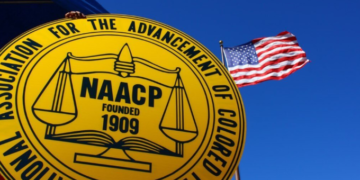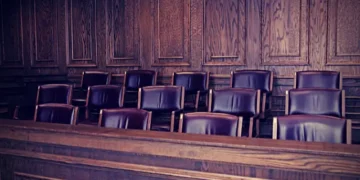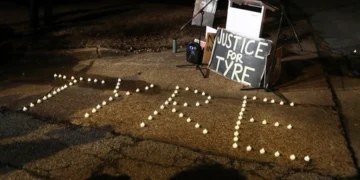Jan 1, 2025 Story by: Editor
Among several legislative measures awaiting action by Ohio Governor Mike DeWine, a controversial proposal seeks to allow police departments to charge $75 per hour for processing body camera footage, with a maximum cap of $750 per request.
The Bill’s Unexpected Evolution
The provision emerged in the final stages of House Bill 315, a piece of legislation initially aimed at revising Ohio Township laws. Originally, the bill focused on enabling public notices to be published digitally and allowing trustees to create preservation commissions. However, during the legislative rush, the bill was transformed into a catch-all for unrelated proposals struggling to gain traction independently.
House Bill 315 now includes measures such as a definition of antisemitism and expanded authority for the Secretary of State over notaries. Yet, the most unexpected addition is the provision concerning public records, which no prior legislation had addressed in such detail.
This new measure formalizes the rights of law enforcement agencies to take additional time for reviewing, redacting, and producing video footage, while also setting specific costs for these services.
Governor DeWine’s Stance
Although Gov. DeWine has yet to sign or veto the bill, he expressed understanding of the challenges faced by small police departments. “This isn’t about whether or how fast the public can access records,” DeWine stated at a press conference, “but rather, as a matter of public policy, are we going to require some reimbursement for that?”
Key Provisions in the Proposal
The proposal permits law enforcement agencies to charge $75 per hour for tasks like reviewing, blurring, and uploading body camera footage, with a maximum charge of $750 per request. Additionally, courts are instructed to consider the time taken to prepare video records when evaluating whether agencies meet the “reasonable” time frame required by law.
The measure also allows agencies to demand prepayment of estimated costs before starting a request, with the ability to charge up to 20% more if actual costs exceed estimates. Furthermore, agencies are granted up to five business days to produce cost estimates, potentially delaying the process.
Criticism and Pushback
The Ohio Legislative Black Caucus (OLBC) has strongly opposed the proposal, urging Gov. DeWine to use a line-item veto to remove the police video provisions.
Rep. Terrence Upchurch, D-Cleveland, criticized the fees, arguing, “Taxpayers have already funded these cameras and footage. Charging additional fees for access is wrong and undermines transparency.” He added that the changes would disproportionately affect Black and minority communities, stating, “When families seek answers or communities demand accountability, these records provide clarity. Charging the public for access erodes trust and justice.”
In a joint letter, the Ohio branches of the ACLU, Common Cause, and the NAACP echoed these concerns. They pointed out that the amendments were introduced late in the legislative session without public notice or input.
“Ohioans had no opportunity to air concerns, to discuss these changes with lawmakers and other stakeholders, or to formally appear as witnesses before a committee(s),” the letter argued.
The groups further noted that vetoing the provisions would not foreclose future discussions on the issue. “Your veto will still allow legislators, if they wish, to pursue these changes,” they wrote, “but instead with an open, deliberative, and cooperative process. This would allow Ohioans to properly express their opinions and concerns without such sudden and secretive changes with huge impacts on policing and the public’s right to know.”
Conclusion
The debate over House Bill 315 highlights tensions between law enforcement’s logistical concerns and the public’s right to transparency and accountability. As Gov. DeWine deliberates, advocacy groups and lawmakers continue to call for a more inclusive and transparent process to address these critical issues. Source: Ohio Capital Journal

















